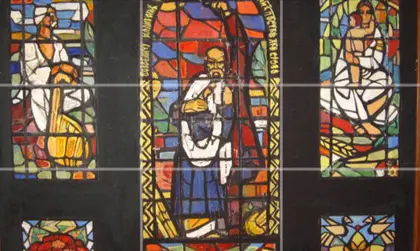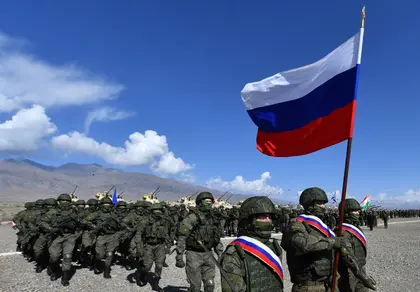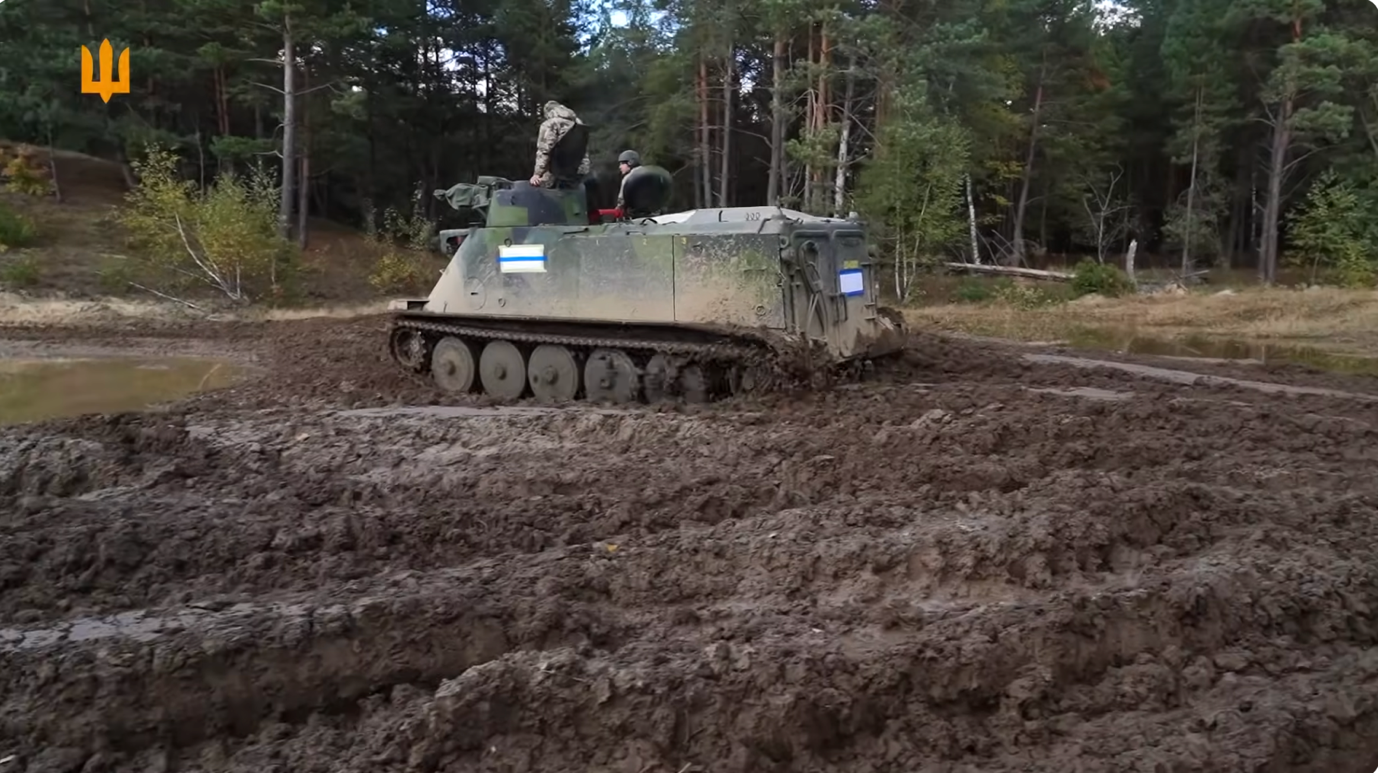Every year, Ukrainians observe various historical events and honor notable individuals from the nation’s past. This has become more complicated during this past year of war.
Ukrainian religious rites, however, remain unchanged; because, in times of grief and danger, people find the need to pray more. Ukrainian chaplains perform a far greater role among our soldiers, not only because of the moral support and mental solace they provide, but also because they often arrange for shipments of defensive equipment and offer medical and humanitarian assistance.
JOIN US ON TELEGRAM
Follow our coverage of the war on the @Kyivpost_official.
From the point of view of national consciousness and identity, many things have been more firmly established. The Ukrainian nation has become more united in its dedication to territorial integrity, sovereignty, the Ukrainian language and symbolism. Important symbols include the annual commemoration of Taras Hryhorovych Shevchenko, known as the “Shevchenko days”: March 9, the poet’s birthday in 1814, and March 10, when in 1861 he departed into eternity.
God and Shevchenko are not moral equivalents, but they are both sources of spiritual inspiration. “God and Ukraine” is the mantra of many Ukrainian organizations, particularly those involved with the education of the younger generation. Church, or simply one’s inner personal relationship with God, is the essence of a religious life, spirituality, and moral integrity. For Ukrainians, Shevchenko is at the core of their national consciousness.

ISW Russian Offensive Campaign Assessment, November, 4, 2024
Taras Shevchenko represents the Ukrainian national identity irrespective of partisan affiliations. Refraining from metaphysical absolutes – because Shevchenko was, after all, a human being with human flaws – one must note that he was by any measure an extraordinary human being, his status verging on that of national prophet as well as the people’s great bard.
Within his poetry and life, one finds almost everything needed for developing national consciousness and perseverance in times of trial and tribulation – language, dedication, unity, even practical strategies – everything that today the nation needs to win the war against its aggressor, an enemy Shevchenko very clearly depicted as evil in his poetry.
Recently, a colleague of mine in Ukraine, amid the explosions of rockets, admitted to me that 25 years ago, at the inception of our friendship, I was spot on when I spoke of the Russians as a horde – essentially imperialists, “bad people” with a twisted mentality that pervades all of society, including Russian mothers. He had Russian friends. I asked him then if these friends were true friends. He insisted naively that they were. Today he has changed his opinion.
Many former Ukrainian dissidents and political prisoners spoke not about the hostility or danger from the Russian people, but about the so-called perilous center of power – Moscow or the Kremlin. My colleague need not have listened to me. It would have been enough to simply look into Shevchenko’s Kobzar (The Bard), his collected poems. Everything is presented there clearly so that “the sleeping do not dream of all the lies.” Shevchenko also had Russian friends (perhaps merely acquaintances), yet he wrote that “the Muscovites are evil people, they are doing evil to you,” reminding his people of “tall burial mounds appearing before our eyes.”
Fortunately, the war today is proceeding toward our victory, but at a great human cost. Lives are irrevocably altered, careers halted, personal relationships aborted, wealth depleted. The war has changed the life of every resident of Ukraine and should have changed the life of every Ukrainian outside Ukraine in measure with their moral compass and level of concern.
The struggle against and victory over the horde is the sacred duty of every Ukrainian. Shevchenko instructed: “Fight, you will overcome. God helps you. With you is strength, with you is will and the holy truth.” Today the whole world sees that the “holy truth” is with us.
So, when we in the diaspora ask ourselves (often disingenuously) what we should do in this difficult time, let’s look into Shevchenko’s Kobzar. We have to join the war together with the people of Ukraine, provide them with everything they need, regardless of the cost to ourselves, short of sacrificing our own lives.
Shevchenko first felt freedom when he was bought out of serfdom. He understood this as a gift from God that he dare not waste, as an opportunity to strive for the freedom of his people. That is why he devoted not only his work but his life to the cause.
Nevertheless, his life as a free person was marked by difficult experiences: persecution by the authorities; the contempt of his Russian “friends,” as well as other writers; exile, with a ban on writing and painting; and, ultimately, a premature death. For a poet and an artist, a ban on writing and painting essentially means death. Even the reburial of the poet – fulfilling his “Testament,” in which he wrote: “When I die, bury me in a mound amid the wide steppe, in my dear Ukraine” – encountered great obstacles and took place two and a half months after his death.
The poet’s entire life was a struggle. That struggle should serve as an example for all Ukrainians who have or will come after him. The Russian aggressor sits at Ukraine’s border for the long term unless it is neutralized by decolonization, dismantling the current Russian empire into independent nation-states.
Spurning God and religion, the Soviet authorities recognized the need for treachery. So Stalin rehabilitated the so-called Orthodox Church of the Moscow Patriarchate as a front for the NKVD. Unfortunately, this KGB-front aberration of a “church” has continued its existence for more than 30 years since Ukraine’s independence. Even today, some unfortunate ostensibly religious “Little Russians” fill the structures of that abomination, and some legitimate international religious leaders even treat this monster as a real spiritual institution. It is very difficult to explain or justify this behavior.
The greatest significance of Shevchenko is his continued and pervasive triumph. The poet died in 1861, but today, more than a century and a half later, he continues to be deemed dangerous by Ukraine’s enemies. Shevchenko’s reburial mound in Kaniv, Ukraine became a national holy site, where people come as pilgrims for a sense of national reawakening and renewal.
Despite the efforts of Hetman Ivan Mazepa (1639-1709), who was glorified in the poetry of Lord Byron, historians consider the period of Ukrainian history from the Treaty of Pereyaslav in 1654 (the Cossacks’ unfortunate alliance with the Muscovite Tsar) until Shevchenko, as a ruinous period in Ukrainian history.
Because of Shevchenko, our historical nation was revived and the period that followed has been one of state-building. The Tarasivtsi Brotherhood in the late 19th century, named after the poet, gave impetus to the liberation struggle and the proclamation of the Ukrainian National Republic in 1918, reaffirmed by the Act of June 30, 1941, the struggle of the OUN-UPA, as well as the later the struggle of the writers and artists of the sixties. It is no coincidence that the artist Alla Horska was killed for her role in creating the stained glass window in Kyiv’s university named after the poet where Shevchenko stood with a raised fist, but which was soon destroyed.
The Soviets could not overcome the power of the poet entirely, so they allowed monuments to appease the people, but rewrote his poetry in part, hoping to at least confound his message. It seemed that the Soviet authorities were able to cope with almost everything, even with our language, because Little Russians had already begun to speak Russian. But they couldn’t defeat God and Shevchenko, so they resorted to deceit.
But the truth won out. Today, the monument to Taras Hryhorovych in Kyiv’s Shevchenko Park is inaccessible, carefully wrapped and reinforced to protect it from enemy missiles. However, the immortal Shevchenko – that is, the spirit of the poet and prophet – lives in all Ukrainians. In spirit, Shevchenko commands the Armed Forces of Ukraine and the nation.
And the spirit of Shevchenko’s anniversaries is contained in the popular song “The Path to Taras,” whose lyrics were written by Yuriy Rybchinsky:
“I go from childhood to Taras, carrying his earthly thoughts. When my soul is wracked by hellish strife, I go to him, as if in life… Through angry wind I carve my steps, and every second hear my heartbeat. ‘The wide Dnipro roars and groans’ to rouse whoever is asleep.”
Because, in the end, we are all children – of God and Shevchenko’s national progeny.
Thank you, Taras, for being with us at this time of yet another difficult trial. With your prophetic and fiery words, our once blind eyes are now aware of their path to victory. The Dnipro roars and groans! I am awake. Glory to Ukraine!
You can also highlight the text and press Ctrl + Enter






